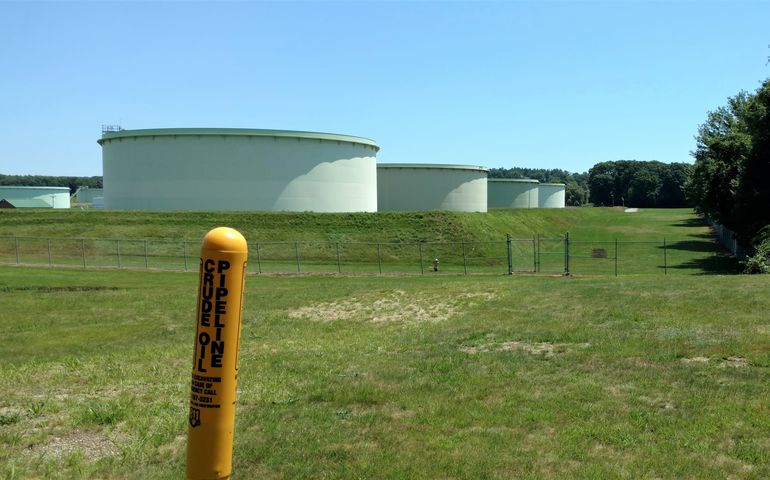Processing Your Payment
Please do not leave this page until complete. This can take a few moments.
- News
-
Editions
-
- Lists
-
Viewpoints
-
Our Events
-
Event Info
- Business Leaders of the Year Reception 2025
- Women's Leadership Forum 2025
- On the Road with Mainebiz in Bethel
- Health Care Forum 2025
- On The Road with Mainebiz in Greenville
- On The Road with Mainebiz in Waterville
- Small Business Forum 2025
- Outstanding Women in Business Reception 2025
- On The Road with Mainebiz in Bath
- 60 Ideas in 60 Minutes Portland 2025
- 40 Under 40 Awards Reception 2025
- On The Road with Mainebiz in Lewiston / Auburn
- 60 Ideas in 60 Minutes Bangor 2025
Award Honorees
- 2025 Business Leaders of the Year
- 2024 Women to Watch Honorees
- 2024 Business Leaders of the Year
- 2023 NextUp: 40 Under 40 Honorees
- 2023 Women to Watch Honorees
- 2023 Business Leaders of the Year
- 2022 NextUp: 40 Under 40 Honorees
- 2022 Women to Watch Honorees
- 2022 Business Leaders of the Year
-
-
Calendar
-
Biz Marketplace
- News
- Editions
- Lists
- Viewpoints
-
Our Events
Event Info
- View all Events
- Business Leaders of the Year Reception 2025
- Women's Leadership Forum 2025
- On the Road with Mainebiz in Bethel
- Health Care Forum 2025
- On The Road with Mainebiz in Greenville
- + More
- On The Road with Mainebiz in Waterville
- Small Business Forum 2025
- Outstanding Women in Business Reception 2025
- On The Road with Mainebiz in Bath
- 60 Ideas in 60 Minutes Portland 2025
- 40 Under 40 Awards Reception 2025
- On The Road with Mainebiz in Lewiston / Auburn
- 60 Ideas in 60 Minutes Bangor 2025
- - Less
Award Honorees
- 2025 Business Leaders of the Year
- 2024 Women to Watch Honorees
- 2024 Business Leaders of the Year
- 2023 NextUp: 40 Under 40 Honorees
- 2023 Women to Watch Honorees
- 2023 Business Leaders of the Year
- + More
- 2022 NextUp: 40 Under 40 Honorees
- 2022 Women to Watch Honorees
- 2022 Business Leaders of the Year
- Nomination Forms
- Calendar
- Biz Marketplace
Clear Skies law in South Portland clears legal challenge after six years
 File Photo / William Hall
This oil-tank farm in South Portland, shown here looking south from Hill Street, contains contains 23 tanks. The Portland Pipe Line Corp. facility is one end of the pipeline between Maine and Montreal.
File Photo / William Hall
This oil-tank farm in South Portland, shown here looking south from Hill Street, contains contains 23 tanks. The Portland Pipe Line Corp. facility is one end of the pipeline between Maine and Montreal.
South Portland officials are claiming victory in a six-year legal battle over the city’s Clear Skies ordinance, which forbids the loading of crude oil onto oceangoing tanker ships at South Portland docks.
Portland Pipe Line Corp., which operates a 3.5 million-barrel oil tank farm in South Portland and is headquartered there, on Thursday dropped an appeal in the company’s lawsuit to overturn the law. The voluntary dismissal effectively upholds the ordinance, which the city passed in 2014.
Portland Pipe Line sued the next year, claiming among other things that the law was inconsistent with the U.S. Constitution’s Commerce Clause. After a four-day trial in 2018, the federal district court for Maine ruled in South Portland’s favor on that claim. The company appealed to the 1st U.S. Circuit Court of Appeals.
The appeal ultimately involved a ruling by the Maine Supreme Judicial Court and recent friend-of-the-court briefs from several federal agencies. Others of the nine counts in the suit were previously dismissed.
South Portland Mayor Misha Pride commented in a news release Thursday on the company’s decision to end the appeal, saying, “This is a very good outcome for our community. The ordinance enacted by a prior City Council will stand, and I hope we can also rebuild our relationship with PPLC. It is in both of our interests to work together on future plans for their various properties in South Portland.”
South Portland approved the oil-loading ban after PPLC began contemplating a plan to reverse flow in its 236-mile pipeline between Maine and Montreal. The plan would have allowed the company to pump oil from Canada to South Portland, where the crude could be shipped worldwide.
Environmental and climate-change activists had sharply criticized that scheme, claiming it would likely involve the transportation of “tar sands” oil, which is especially destructive, they said.
The company did not immediately respond to inquiries from Mainebiz, but reportedly chose to end the appeal because it currently has no plans to reverse oil flow.
Since 1941, Portland Pipe Line has pumped 5 billion barrels of crude oil, delivered by sea, in the other direction — from South Portland to Montreal — for refining and distribution in Canada. But in recent years much of the line’s capacity has been idled.
The line is actually two lines of piping, one with an 18-inch diameter and the other 24 inches wide. The pipeline runs from PPLC’s 23-tank farm in South Portland to a similar facility in Montreal.
Portland Pipe Line is a wholly owned subsidiary of Montreal Pipe Line Ltd., a privately held Canadian company. The two companies together call themselves Portland-Montreal Pipe Line.
Mainebiz web partners
Perhaps the article could mention that 47 people perished when the entire downtown of Lac-Megantic, Quebec was incinerated in a rail disaster arising from the rail transport of the somewhat more volatile tar sands derived oil. The purpose of reversing the pipeline was to move oil by a much safer means to the refinery in Saint John, NB. Most of New England gets its gasoline and heating oil from the Irving refinery and the tar sands oil eliminated the need to rely on oil from the Middle East.










1 Comments